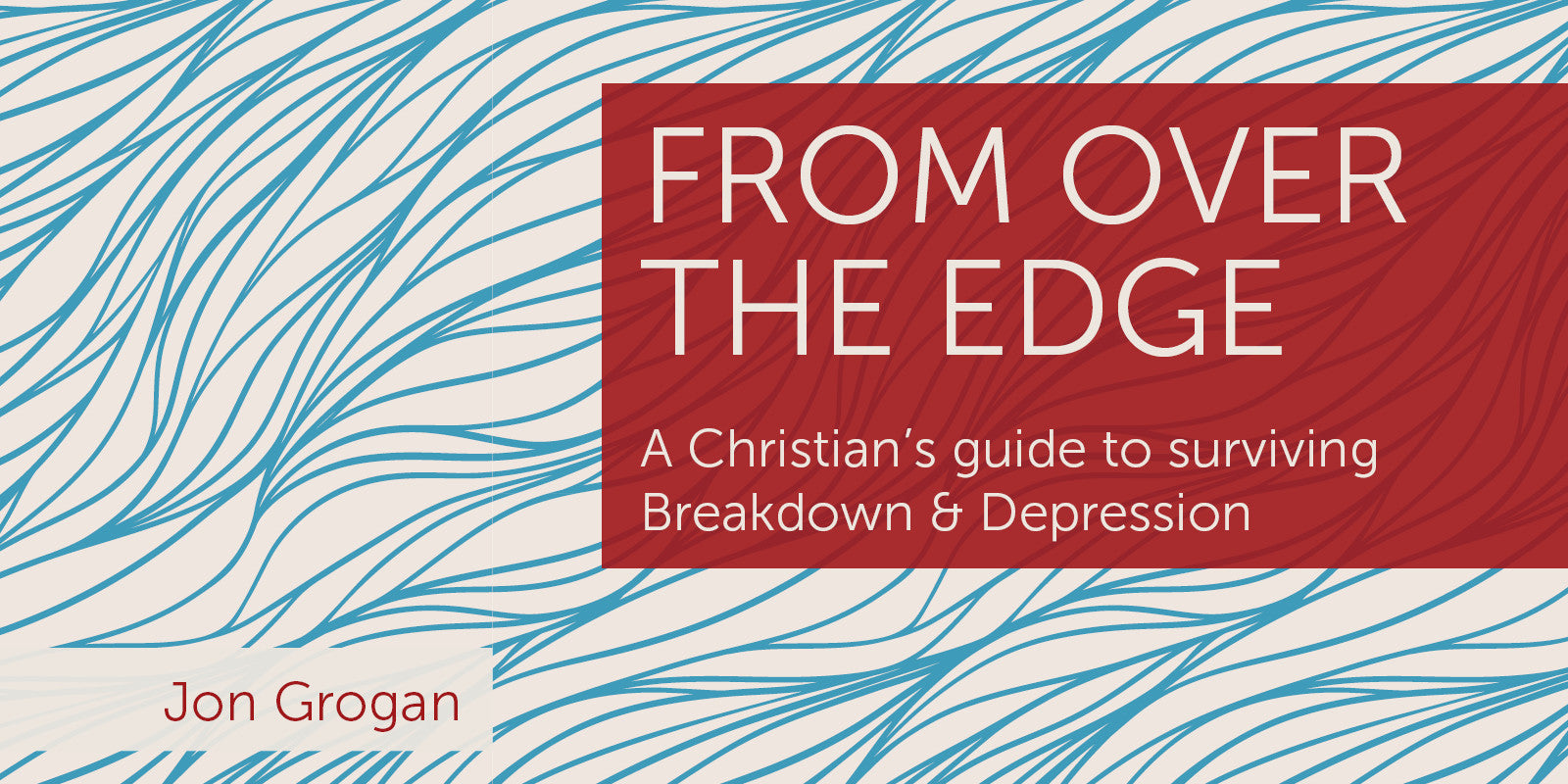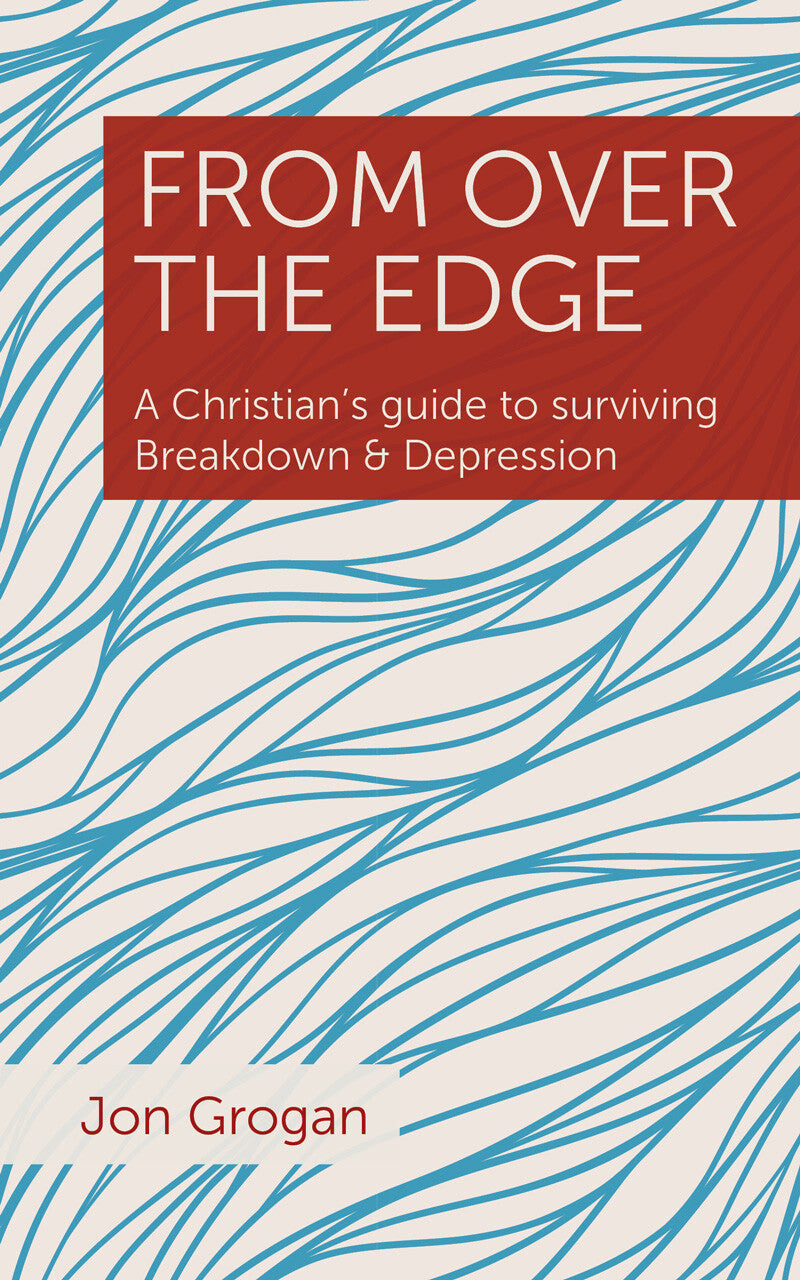GUEST BLOG: What really is stress, and what constitutes a Christian reaction to it? #BookOfTheMonth author Jon Grogan explores this issue.
I was waiting for a hospital appointment not that long ago and was vaguely aware of another patient raising a concern with a nearby nurse. The nurse offered the guy some incidental advice. She simply didn’t believe in getting stressed: “What is going to happen will happen anyway so there is no point worrying about it”. I wondered, was there really such a simple antidote to stress? My natural instincts were rather suspicious but it did lead me to think about what a Christian approach to the issue might look like.
I once heard some describe stress as the product of an equation where the demands upon us are the numerator, with our resources being the denominator. When we face increasing external pressures on the top half of the fraction but don’t have the corresponding inner resources below to meet them, we end up with a bigger number and so experience higher levels of stress. Given my own experience of stress, I am particularly aware of its detrimental effect on mental health. When I was suffering from a breakdown, I would recoil when my mobile phone let out a pathetic beep and displayed the message “battery critically low”. That was just how I felt: too much to cope with and all my resources drained. It is worth remembering that, for some of us, the stress-related problems we are experiencing will be linked to the suffering of a clinical disorder such as anxiety or depression, and we are well-advised to consult a medical professional to find out what the most appropriate treatment may be, for example counselling, therapy and/or medication.
Having thought about it a bit more, I wonder if a slight modification to the stress formula might sometimes involve substituting actual demands and actual resources for our perception of those things. The problem may be more subjective than objective. If we see the problem as massive and do not trust our abilities to tackle it, we are going to suffer more stress. Conversely, if we are blasé about a difficult issue or are unrealistically confident about our skills for overcoming it we might well get away untouched by stress. None of these approaches seems a particularly authentic or ultimately healthy way of living. But even if we manage to get the pressures we are facing into perspective, is it as easy as just saying “don’t worry”?
There are plenty of easily-quotable biblical exhortations not to worry or be afraid. You may have sat through sermons where these have been emphasised and the message can be summarised as “don’t worry, trust Jesus”. For anxious types like me we are left feeling that these don’t quite hit the mark somehow. I believe that God recognises that anxious thoughts are part of our condition, and that some of us are more susceptible to anxiety than others. Just telling ourselves that we ought not to worry about something big that is going on in our lives is probably going to lead to a less authentic prayer life, nor will it fool our minds and bodies. Sometimes we might be best just being prayerfully mindful of the strain that we are under rather than trying to suppress or run away from this state: “Search me, O God, and know my heart, test me and know my anxious thoughts” (Psalm 139:23, NIV).
It is also true that experiences which we might consider stressful can be used by God to teach us valuable and even life-changing lessons. I don’t know whether the nurse who triggered all this would agree, but maybe the trick is to accept that some situations are by their very nature stressful but not to get overwhelmed by these and potentially even see them as opportunities for growth. I’ll leave you with James, whose words on this subject I certainly find challenging, but at the same time somehow consoling:
“Consider it a sheer gift, friends, when tests and challenges come at you from all sides. You know that under pressure, your faith-life is forced into the open and shows its true colours. So don’t try to get out of anything prematurely. Let it do its work so you become mature and well-developed, not deficient in any way.”
James 1:2-4, MSG
Did you enjoy reading this blog? Jon Grogan is the author of our August #BookOfTheMonth: From Over the Edge is an intimate account of struggling with depression and breakdown as a Christian. Get your copy right here.
Read more from Jon on Twitter @jonnygrog.











